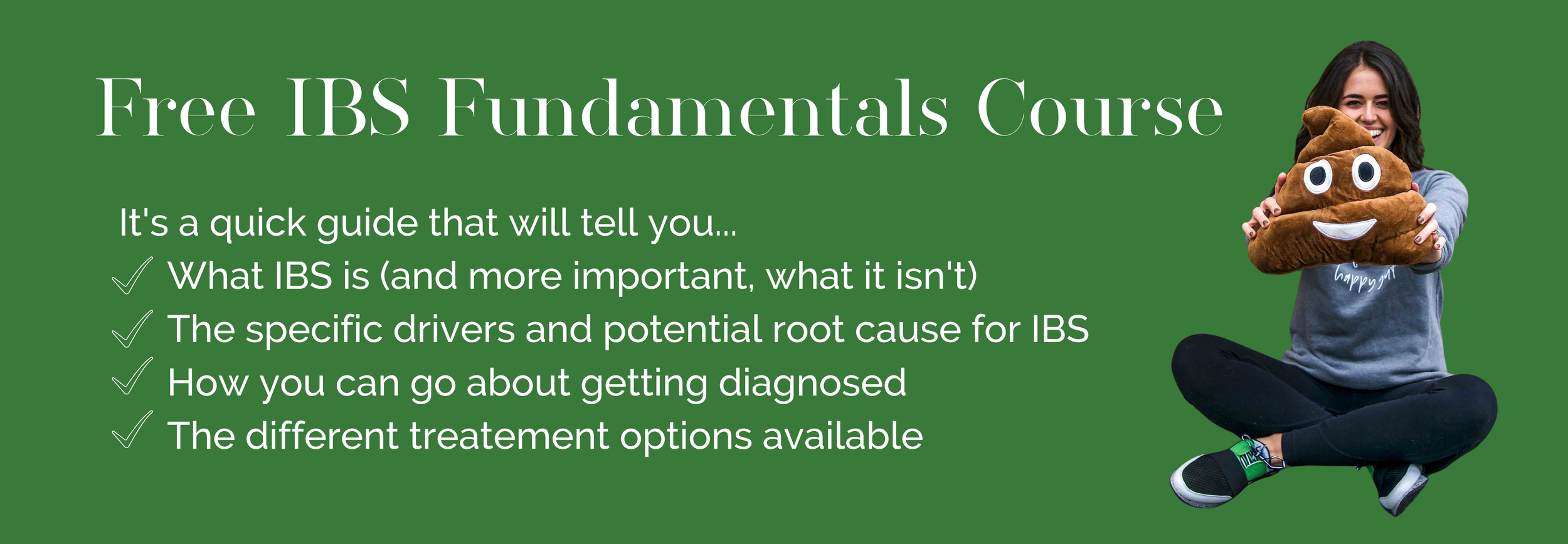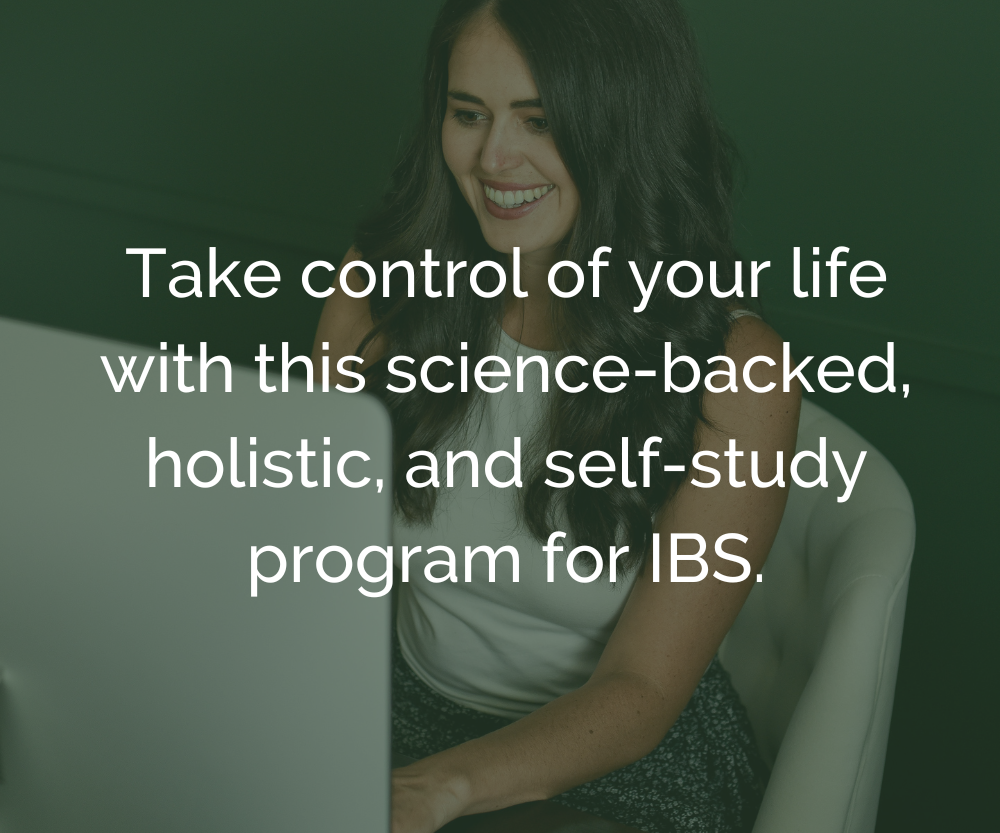The Difference Between IBS and IBD
Digestive disorders and diseases can present with similar symptoms, overlap with one another, and get mixed up during conversations with health practitioners. Two that I commonly see mistaken with each other are irritable bowel syndrome (IBS) and inflammatory bowel disease (IBD). The purpose of this article is to simply break down both, share some of the overlaps and differences, then briefly explain how each are managed.
What is IBS?
IBS is a functional gut-brain disorder that is characterized by the changes in the function of the digestive system, as well as an impaired gut-brain axis, which is the bi-directional communication pathway between the gut and brain. The most common symptoms include bloating, abdominal pain, gas, and chronic diarrhea and/or constipation. It is classified as IBS-D if diarrhea is the more prevalent symptom, IBS-C if constipation is more prevalent, and IBS-M if there is an equal mixture of the two.
IBS is one of the most commonly diagnosed gastrointestinal (GI) illnesses, and is prevalent in about 10% of the population in Western countries. IBS is symptoms-based, so definitive testing for a diagnosis can be difficult. Currently, diagnosis is determined according to Rome Criteria with the presence of the common symptoms, in absence of other diseases with common symptoms.
IBS is marked by dysbiosis (an unideal microbiome makeup), increased intestinal permeability (leaky gut), and impaired gut-brain communication. These are thought to be caused by chronic stress, gastroenteritis (infection in the gut), genetics, chronic antibiotic use, surgeries, as well as others that are not as commonly understood.
While there is some evidence to support the link of IBS with chronic inflammation, IBS is not marked by an inflammatory response in the gut. Instead, the condition is marked by the symptoms. There are no adverse health effects directly tied to having IBS. However, there in an increased risk for poor quality of life, mood disorders like anxiety and depression, malnutrition due to poor intake, eating disorders due to food fears, and potentially a risk for chronic inflammation due to increased intestinal permeability (we still need a bit more information here).
What’s your poop personality? Find out here!
Treatment for IBS can be multifaceted. The goal is to first manage symptoms, then to support the microbiome to improve dysbiosis. To manage symptoms, an individual may choose to use medications, supplements like laxatives or fiber, lifestyle modifications, dietary modifications like the low FODMAP diet, behavioral therapy like CBT, or gut-directed hypnotherapy to target the impaired gut-brain communication. All of these treatment options are used to achieve symptom relief. After symptoms have been managed, then a Mediterranean diet or fiber-rich diet can be used to improve dysbiosis. This will look different for each individual based on their own unique needs. All of these treatment options should be done alongside trusted healthcare professionals, including a gastroenterologist, therapist/psychologist, and/or registered dietitian.
What is IBD?
IBD is a chronic disease that causes inflammation in the GI tract, meaning it is marked by an inflammatory response that can result in damage to the tissue of the GI tract and health risks, including colon cancer. There are two main types of IBD: Crohn’s disease and ulcerative colitis.
Crohn’s disease can affect any part of the GI tract, from the mouth to the anus. Common symptoms include diarrhea, abdominal pain, fever, and fatigue. The severity of symptoms vary for each person and can change over time. The cause is thought to be a viral or bacterial infection. There may also be a genetic component involved and diagnosis typically happens by age 30.
Ulcerative colitis (UC) only occurs in the large intestine (colon) or the rectum. Inflammation in these areas lead to small ulcers in the lining of the intestinal wall. Symptoms include abdominal pain, fever, weight loss, loose stools, and bleeding due to ulcers. The cause may be an overactive immune system. UC is typically diagnosed before age 35, but it is a progressive condition that can worsen with age.
IBD is difficult to diagnose because symptoms overlap with other conditions, including IBS, and symptoms can come and go. While IBS is diagnosed according to symptoms, IBD is actually diagnosed through different tests that look at the colon and tissues of the GI tract. To help get an accurate diagnosis, it can be helpful to keep a detailed food and symptom log that you can share with your gastroenterologist.
IBD is treated differently for each person. If the condition is not as severe, an individual may be able to manage through lifestyle and dietary modifications. Some of the major triggers for IBD symptoms include smoking, dairy, high fat meals, spicy foods, alcohol, and caffeine. If the condition is more severe, anti-inflammatory medications could be used, as well as immune-suppressing drugs. Sometimes, doctors will prescribe anti-diarrhea medications and supplement micronutrients. When these interventions do not work, surgery can be necessary.
Major Differences between IBS & IBD
IBS has no cure, but also appears to have no adverse effects on the health of the gut. IBD also has no cure, but is known to go into remission, where symptoms go away and “triggers” may be reintroduced. IBD does have an adverse effect on the health of the gut by damaging tissue and increasing the risk for bowel cancer.
IBS can be treated with lifestyle and dietary modifications alone, while IBD may require the use of medications and/or surgery in many individuals.
IBS is diagnosed if an individual meets the criteria, which can lead to misdiagnosis and confusion in the diagnosis. IBD may take a long time to diagnose, but can be more confidently diagnosed via testing.
It is not uncommon for IBS and IBD to both be diagnosed. Due to this, it’s important to work with a knowledge gastroenterologist and registered dietitian to create a plan for managing your symptoms and getting your IBD into remission. If you’re interested in how my services could help, apply for a consult call here so we can talk about it.
Are you frustrated with your IBS symptoms? Do you desire to be confident in your food choices? Do you want to have a healthier relationship with your body and diet? Are you ready to take control of your IBS?



